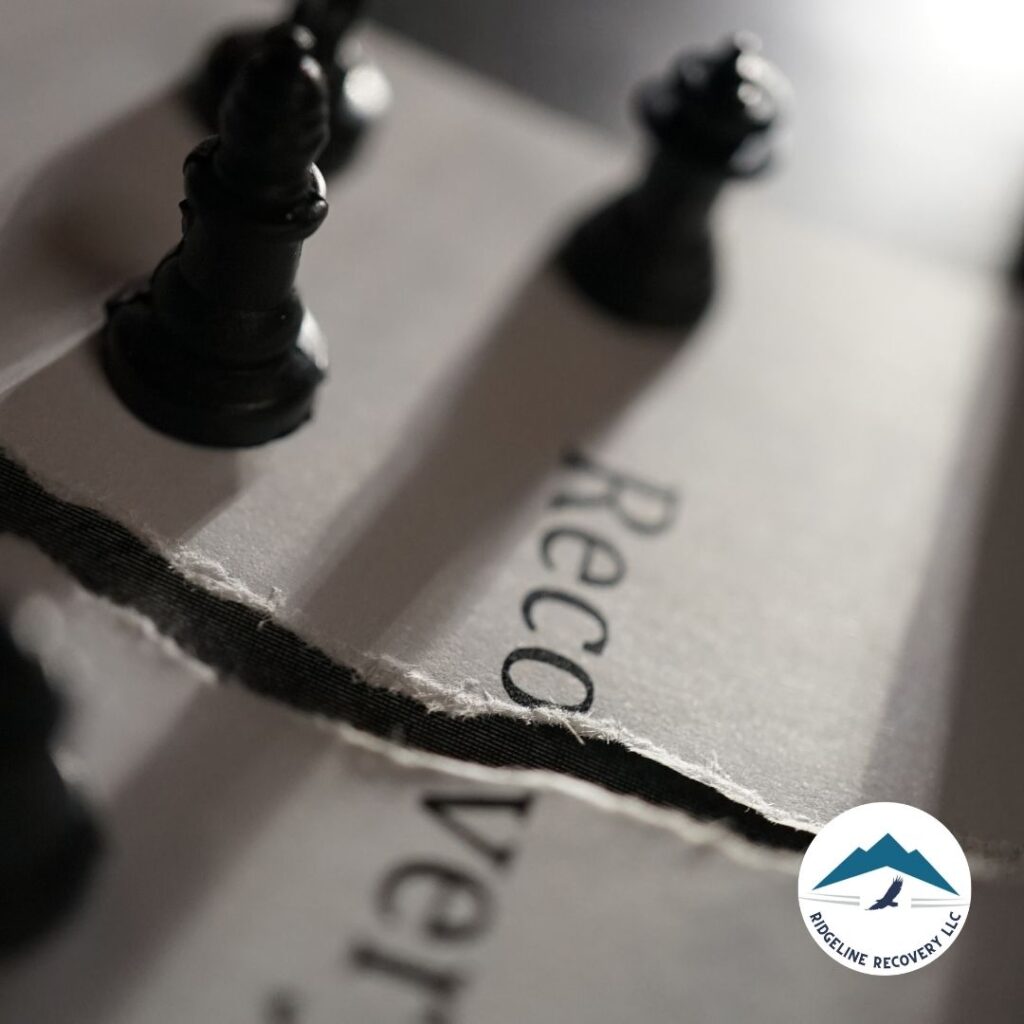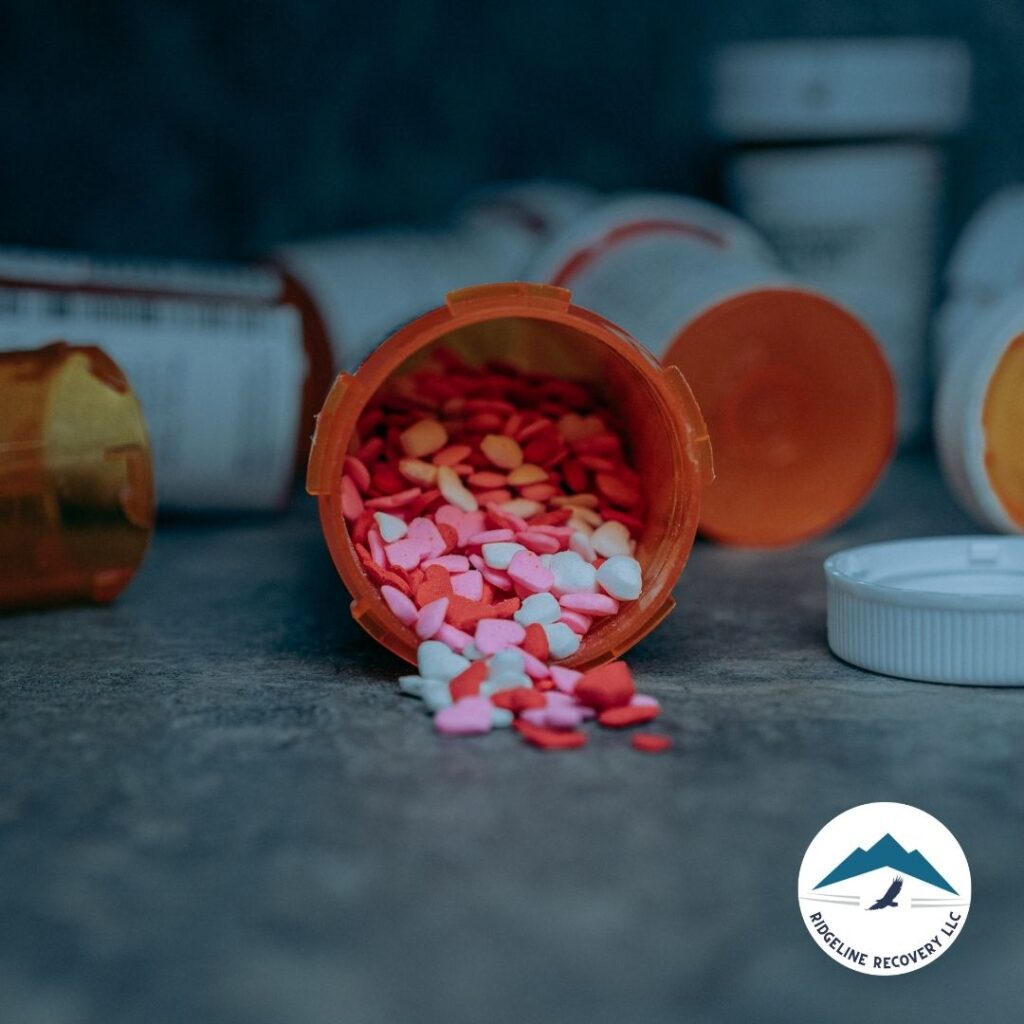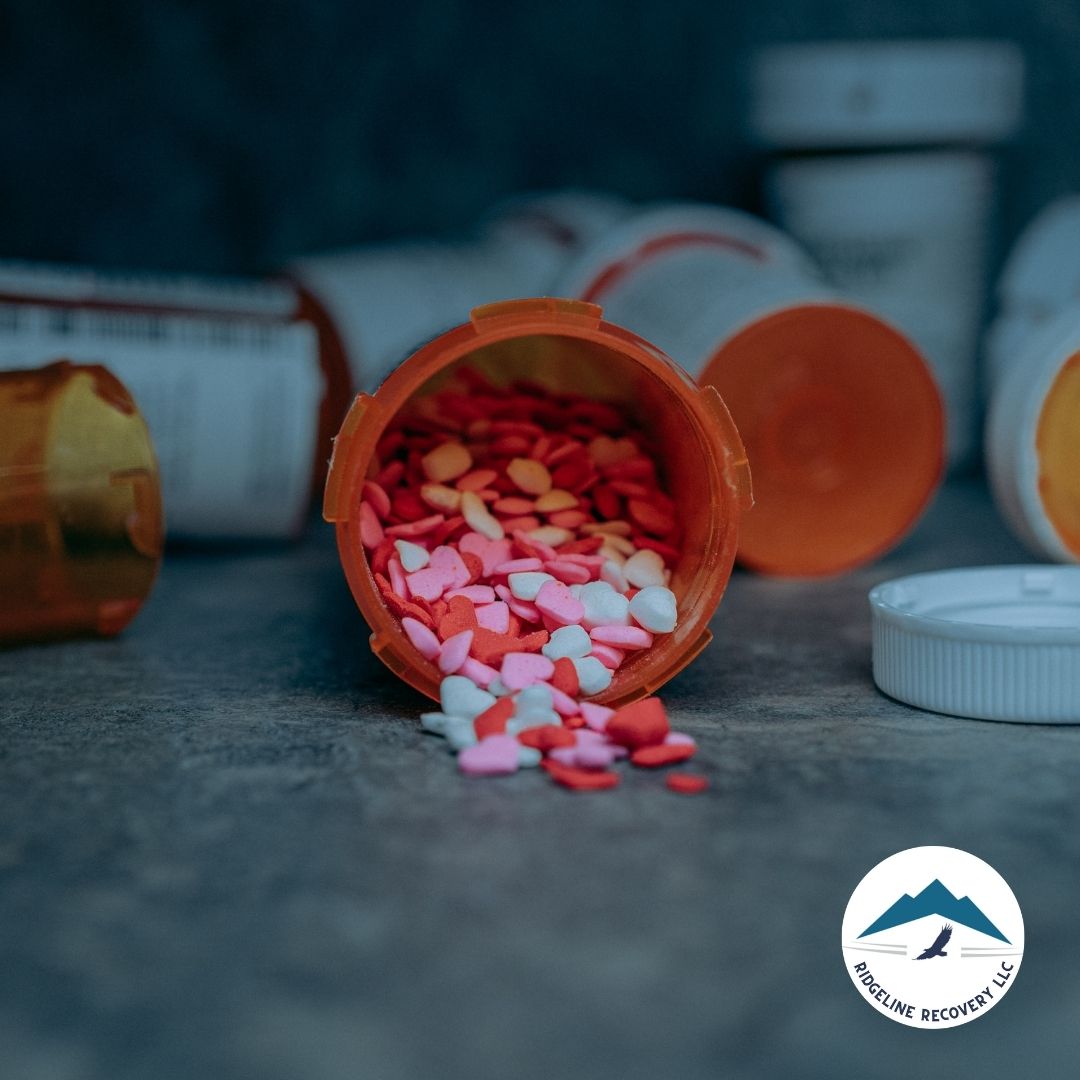When you’re thinking about recovery, one of the biggest questions isn’t just where to start, but how. How do you make lasting changes? How do you find the right Addiction Therapy Services that are worth the time, energy, and commitment you’ll invest?
Ridgeline Recovery in Columbus, Ohio, sees these questions every day—and the answer starts with personalized care, designed for you. Because addiction isn’t one-size-fits-all, and neither is recovery. That’s why Addiction Therapy Services focused on individual needs make a difference.
Today, we’re diving into what truly effective Addiction Therapy Services look like, why they’re critical, and how Ohioans are finding lasting solutions through specialized care. Let’s get real about what works, what doesn’t, and why having the right tools matters for everyone from young adults struggling with substances to long-term users seeking a second chance.
Understanding Addiction Therapy Services: Why Personalization Matters
Here’s the thing: Addiction Therapy Services aren’t just a standard package. They’re not a quick fix, and they’re not something you can check off a list.
For anyone dealing with addiction, getting clean is just the beginning. Staying clean—that’s where therapy comes in. And that’s where personalized Addiction Therapy Services make all the difference. Services that take into account your unique story, your unique struggles, and your unique goals.
Why Individualized Treatment Works
Every single person who walks into an addiction center is bringing their own backstory. For some, it’s trauma-related. For others, it’s the need to cope with an overwhelming life event. And for others, it might be the result of years of untreated mental health conditions.
This is why effective Addiction Therapy Services offer:
- Individualized Counseling: Working one-on-one with a therapist who understands your triggers, your history, and your goals.
- Family Support: Addiction affects everyone around you. Having a family therapy option can bridge the gap between addiction and family healing.
- Dual Diagnosis: For many, addiction doesn’t stand alone. Anxiety, depression, or PTSD can fuel it. Tackling both is the only way to see long-term success.
It’s like personal training at the gym. You don’t walk in and get thrown into a one-size-fits-all program. You sit down, you talk about goals, and you get a tailored plan. It’s the same with Addiction Therapy Services.
Key Components of Addiction Therapy Services
So, what exactly makes up effective Addiction Therapy Services? Let’s break it down:
1. Cognitive Behavioral Therapy (CBT)
If there’s one thing CBT is known for, it’s turning your brain’s “auto-pilot” off. Because, let’s face it, addiction is often about habits—automatic responses to triggers, stress, and negative emotions. CBT helps you identify those patterns and gives you tools to replace them with healthy coping mechanisms.
Benefits of CBT in Addiction Therapy:
- Helps you recognize destructive thought patterns.
- Builds new mental frameworks for dealing with triggers.
- Increases self-awareness and self-control.
2. Motivational Interviewing (MI)
Let’s get one thing clear: no one can make you stay in recovery. The motivation has to come from within. That’s where Motivational Interviewing comes in. This type of therapy digs deep into what you want and helps you set meaningful, motivating goals.
Why MI is Key in Addiction Recovery:
- Focuses on your values and desires.
- Encourages self-reflection, so you stay engaged in your journey.
- Creates personalized goals you actually want to achieve.
3. Family Therapy
Addiction impacts everyone close to the person struggling. Family therapy helps mend those broken ties, allowing loved ones to work together as a team. And let’s be real—without a strong support system, staying on track becomes an uphill battle.
What Family Therapy Does:
- Rebuilds trust and communication between family members.
- Provides tools for handling conflict in a healthy way.
- Increases accountability, strengthening your support network.
Aftercare: The Unsung Hero of Addiction Therapy Services
Here’s something that might surprise you: Addiction Therapy Services aren’t just about what happens in the facility. A lot of success comes down to what happens after you walk out those doors.
Leaving treatment doesn’t mean the work is over. Far from it. Aftercare programs are where the real-life application of everything you’ve learned takes place.
What Quality Aftercare Looks Like
Good aftercare keeps you on track long after the initial motivation fades. In Ohio, some of the best Addiction Therapy Services offer:
- Regular Check-ins: Consistent support, whether it’s once a week or once a month.
- Sober Living Support: Structured housing options if you need time adjusting before going back home.
- Alumni Programs: Staying connected with peers who’ve gone through similar challenges.
Aftercare isn’t a side note in recovery; it’s the foundation that keeps you grounded.
The Importance of Mental Health Integration in Addiction Therapy Services
Mental health and addiction aren’t separate issues. For many people, they’re deeply intertwined. Treating addiction without addressing mental health is like treating a fever without looking at the infection. You’re only dealing with half the problem.
Dual Diagnosis Treatment: Addressing Both Sides of the Issue
Many Addiction Therapy Services in Ohio now offer dual diagnosis treatments, which address both addiction and mental health. This is essential because conditions like depression, anxiety, and PTSD don’t disappear once you get clean. They need to be actively treated if you want to stay sober.
If you’re dealing with mental health issues, Addiction Therapy Services that include dual diagnosis care make it possible to build a solid foundation for recovery. This is where you’ll likely encounter various mental health professionals—psychiatrists, counselors, and therapists who specialize in both substance use and mental health disorders.
The Role of Medication-Assisted Treatment (MAT) in Addiction Therapy Services
One approach making waves in Addiction Therapy Services is Medication-Assisted Treatment (MAT). With medications like Vivitrol (often available in Vivitrol clinics near me) being integrated into treatment plans, MAT helps reduce cravings and withdrawal symptoms.
How MAT Supports Addiction Therapy
Here’s why MAT is becoming a game-changer in addiction therapy:
- Reduces Cravings: By easing physical symptoms, MAT allows clients to focus more on the mental and emotional sides of recovery.
- Provides Stability: MAT serves as a stabilizer, helping those with severe dependencies manage symptoms without the constant fight against withdrawal.
- Enhances Therapy Outcomes: With reduced cravings, therapy becomes more effective, as clients are more engaged and focused.
For many, this combination of medication and therapy offers the best path forward. It’s not a replacement for therapy; it’s a tool that makes therapy more impactful.
The Power of Community in Addiction Therapy Services

One of the most effective elements in Addiction Therapy Services is the power of community. A solid support network can make all the difference, especially when you’re navigating recovery’s ups and downs.
Why Community Matters in Recovery
Addiction thrives in isolation, so it’s no surprise that community is one of the strongest tools for combating it. Being around people who “get it” — others who have walked the same path — brings invaluable insight, encouragement, and accountability. And let’s face it: recovery is full of tough days. Days where the voice in your head says it’s easier to go back to old habits. This is where a community steps in.
In Ohio, Addiction Therapy Services often incorporate group therapy and community-based support like Alcoholics Anonymous (AA) and other similar groups. These aren’t just “meetings.” They’re lifelines. They’re places where you can hear stories of hope, learn from others’ experiences, and stay accountable.
Types of Therapy Services That Drive Lasting Change
Cognitive Behavioral Therapy (CBT): The Gold Standard
CBT is like the heavy-lifting gym session of Addiction Therapy Services. This therapy dives into the thought patterns driving addiction, helping you identify and reshape negative beliefs. CBT doesn’t just tell you what to avoid; it teaches you why you’re drawn to certain choices and how to break those cycles. It’s actionable, it’s focused, and it’s got results that back it up.
Dialectical Behavior Therapy (DBT): Emotional Regulation at Its Best
For those struggling with intense emotions — from anger to hopelessness — DBT offers practical tools to manage feelings without resorting to substances. With DBT, you’ll learn techniques like mindfulness, distress tolerance, and emotional regulation — strategies that help you stay grounded and in control, even when things feel overwhelming.
What DBT Offers in Addiction Therapy Services:
- Practical skills for handling emotional extremes
- Mindfulness techniques to stay present
- Distress tolerance strategies for managing cravings
Family and Couples Therapy: Healing Beyond the Individual
Recovery is a journey, but it’s not one taken alone. Relationships often suffer in the throes of addiction, and healing them is critical for long-term recovery. Addiction Therapy Services frequently include family and couples therapy as part of a comprehensive approach. Addressing family dynamics, rebuilding trust, and learning new ways to communicate provide support not only for the individual but also for loved ones who’ve been impacted by addiction.
Medication-Assisted Treatment (MAT) in Addiction Therapy Services
The role of Medication-Assisted Treatment (MAT) in Addiction Therapy Services cannot be overstated. MAT uses FDA-approved medications like Vivitrol to reduce cravings and stabilize those in recovery, especially in the early stages when withdrawal symptoms are often at their peak. For many, MAT bridges the gap between detox and sustainable sobriety.
How MAT Supports Recovery:
- Reduces cravings, giving clients room to focus on therapy.
- Stabilizes moods and reduces withdrawal symptoms, which can interfere with therapeutic progress.
- Increases retention in long-term recovery programs, boosting the chances of lasting success.
MAT is often combined with other Addiction Therapy Services like CBT and DBT, maximizing the impact by tackling both the physical and psychological aspects of addiction.
Holistic Approaches to Addiction Therapy
Here’s the thing about recovery: it’s not just about stopping substance use; it’s about building a life that makes you want to stay sober. That’s why Addiction Therapy Services often include holistic approaches, incorporating techniques that work on mind, body, and spirit.
Mindfulness and Meditation
These aren’t just trendy practices — they’re tools proven to reduce stress, improve focus, and foster self-awareness. Mindfulness and meditation help you notice cravings and emotional triggers before they take over. By integrating these practices into Addiction Therapy Services, clients can stay grounded, centered, and in control.
Fitness and Nutrition
When you’re working on rebuilding a healthy life, taking care of your body is critical. Physical fitness not only releases endorphins (natural mood lifters) but also provides a structured routine that fills time once occupied by addiction. Proper nutrition also plays a role in mood stabilization and overall energy levels, both essential for maintaining motivation in recovery.
The Role of Mental Health Support in Addiction Therapy Services
If you’re only addressing addiction without looking at mental health, you’re tackling half the problem. The reality is that addiction and mental health issues often go hand-in-hand. That’s why Addiction Therapy Services often incorporate mental health treatment — because to fully recover, you have to address everything going on.
Dual Diagnosis Treatment: Treating Both Addiction and Mental Health
Dual diagnosis treatment focuses on both substance use and mental health disorders simultaneously. Many people who struggle with addiction also deal with conditions like depression, anxiety, PTSD, or bipolar disorder. Dual diagnosis treats both, creating a balanced approach that recognizes the role each plays in overall well-being.
Why Dual Diagnosis is Essential:
- Mental health conditions can fuel addiction; addressing them reduces the chance of relapse.
- Treating only addiction without mental health support leaves gaps in the recovery process.
- Clients gain a full toolkit of coping mechanisms, not just for addiction but for life challenges.
Creating a Life After Addiction: Building the Foundation for Success
Recovery isn’t a finish line you cross. It’s a foundation you build. After completing Addiction Therapy Services, the journey continues — and that’s where aftercare becomes crucial. Aftercare helps individuals transition back to daily life, equipped with the skills and resilience needed to stay sober.
Types of Aftercare in Addiction Therapy Services
Sober Living Homes
Sober living facilities offer a structured environment where clients can practice the skills they’ve learned in therapy. Surrounded by others in recovery, they gain both accountability and support in real-world settings.
Alumni Programs and Community Support
Staying connected to a community is essential for long-term recovery. Alumni programs often include regular meetups, support groups, and activities that keep former clients engaged, supported, and motivated.
Regular Therapy and Counseling
Continued access to therapy provides a space for clients to address new challenges as they arise. Regular sessions help individuals stay grounded, identify stressors, and reinforce the skills they need to thrive.
Building a Life You Don’t Want to Escape From with Addiction Therapy Services
The ultimate goal of Addiction Therapy Services isn’t just sobriety — it’s creating a life so fulfilling that turning to substances is no longer an option. In recovery, every day becomes a new opportunity to move closer to that goal. Here, we’ll explore how building a fulfilling life through recovery is not only possible but a key part of what we call “lasting success.”
Self-Discovery in Recovery: The True Power of Addiction Therapy Services
Let’s start with a fundamental question: who are you without addiction?
The answer isn’t always obvious because addiction often masks core elements of our identity. In therapy, you start to peel back those layers, seeing the real “you” again — or maybe for the first time. Addiction Therapy Services help people rediscover strengths, passions, and values that have been buried under substance use. This self-discovery process often involves:
- Values Identification: What matters to you? Rediscovering your values shapes the “why” behind your recovery.
- Personal Goals: Therapy encourages setting goals unrelated to addiction, bringing new meaning to daily life.
- Interest Exploration: Hobbies, new passions, and social activities replace the void addiction leaves behind, creating a positive focus.
Why Environment Matters in Addiction Therapy Services
Environment plays a huge role in recovery. Changing your surroundings can significantly impact your success, which is why Addiction Therapy Services often encourage adjustments to your physical and social environment.
Shaping an Environment Conducive to Recovery
Building an environment that supports recovery may mean making tough choices about people and places. Therapy provides the tools to create and maintain healthy boundaries, empowering you to take control of your life. Here’s how to design your surroundings for success:
- Create Safe Spaces: A home environment free from substances and triggers reduces relapse risks.
- Establish Boundaries: Recognize toxic relationships, and establish new boundaries that prioritize recovery.
- Find Healthy Communities: Engage in support groups or activities that reinforce positive habits, like local community centers or fitness classes.
Managing Mental Health as Part of Addiction Therapy Services
Mental health challenges frequently accompany addiction, requiring an integrated approach. Effective Addiction Therapy Services in Ohio focus on both addiction and underlying mental health conditions, like anxiety, depression, or trauma. Here’s how managing mental health within addiction therapy boosts success rates.
The Importance of Therapy for Dual Diagnoses
For many, substance use serves as a way to cope with undiagnosed or untreated mental health issues. Dual diagnosis treatment recognizes the connection between the two and offers a tailored approach. If someone struggles with addiction and depression, therapy might include:
- Mood Stabilization: Techniques to recognize depressive episodes before they worsen.
- Anxiety Management: Skills to manage anxiety without substances.
- Trauma Processing: Therapy methods to resolve past trauma without resorting to substances.
Dual diagnosis treatment isn’t just beneficial — it’s necessary for many in Addiction Therapy Services.
Developing Resilience and Self-Acceptance in Addiction Therapy Services
Recovery requires resilience. Self-acceptance doesn’t mean ignoring mistakes; it means recognizing them, learning from them, and moving forward without shame. Therapy helps foster resilience by:
- Accepting Past Mistakes: Mistakes don’t define you, but growth does. Therapy helps you embrace this.
- Learning from Setbacks: Setbacks are not failures. In therapy, they become lessons, guiding future progress.
- Building Self-Compassion: Being kind to yourself is crucial for long-term recovery. Therapy encourages self-compassion, allowing you to approach challenges with a positive mindset.
Resilience and self-acceptance are pillars of effective Addiction Therapy Services because they empower individuals to face future obstacles with confidence and stability.
Exploring Alternative Approaches in Addiction Therapy Services
Traditional therapy isn’t the only tool for recovery. Some find greater success with alternative methods integrated into Addiction Therapy Services. Options like adventure therapy, music therapy, and mindfulness meditation enhance standard therapies, creating a well-rounded recovery plan.
Adventure Therapy: Therapy Outside the Box
Adventure therapy is an experiential approach that encourages physical activities, often outdoors, to promote personal growth and healing. This might include hiking, rock climbing, or group challenges that test resilience and teamwork. Here’s what adventure therapy can bring to the table:
- Challenge and Growth: Physical challenges mirror emotional ones, showing that growth happens beyond the comfort zone.
- Stress Relief: Nature-based activities reduce stress and promote physical well-being.
- Teamwork and Connection: Group activities foster connection, strengthening social support in recovery.
The Power of Music Therapy
Music therapy channels emotions that might be difficult to express otherwise. For individuals who struggle with verbal expression, creating or listening to music can bring out buried emotions. Music therapy in Addiction Therapy Services provides an outlet for feelings of anger, sadness, or joy that accompany recovery.
Mindfulness Meditation and Emotional Regulation
Mindfulness meditation encourages staying present, recognizing cravings, and observing emotions without judgment. This practice helps prevent impulsive reactions, giving individuals greater control over their decisions.
The Financial Side of Addiction Therapy Services: Making Recovery Accessible
Cost is a huge concern for many considering Addiction Therapy Services. The reality is, recovery is an investment, but there are ways to make it accessible. Here’s how:
- Insurance Coverage: Check with insurance providers like Anthem Blue Cross Blue Shield Ohio or MedMutual Ohio, as many plans cover therapy services and rehab costs.
- Casey’s Law: In Ohio, Casey’s Law allows families to seek court-ordered addiction treatment for loved ones, potentially covering costs through public programs.
- Sliding Scale Payment Options: Some facilities, including those offering Addiction Therapy Services, offer sliding scale fees based on income, making care accessible to more people.
Measuring Success: How Addiction Therapy Services Track Progress
Recovery is often compared to climbing a mountain: progress isn’t always a straight line, but you keep going upward. Measuring success in Addiction Therapy Services involves looking at various milestones rather than an endpoint. Here’s how:
- Personal Goals: Progress isn’t just abstinence; it’s personal growth, improved relationships, and greater self-awareness.
- Behavioral Changes: Noticing a shift in reactions to stress, increased self-control, and the ability to handle emotions is a sign of real growth.
- Satisfaction in Daily Life: One of the biggest indicators of success is overall satisfaction in life. When individuals start enjoying their day-to-day, they’re likely on the right track.

The Role of Families in Addiction Therapy Services
Family support is vital in addiction recovery, and Addiction Therapy Services often encourage family participation through therapy sessions and education programs.
How Families Can Support Recovery
Family members play an integral role in the recovery process. Here’s how families can provide essential support:
- Encourage Accountability: Family support can provide gentle accountability, encouraging individuals to stick with therapy and avoid relapse.
- Understand the Process: Family education sessions teach loved ones about addiction, relapse, and the road to recovery.
- Create a Positive Environment: A supportive, non-judgmental home environment fosters a space where individuals feel safe as they work through recovery challenges.
Family-based support in Addiction Therapy Services can make the difference between staying the course and slipping back into old habits.
Navigating Triggers in Addiction Therapy Services
Even after completing Addiction Therapy Services, you’ll encounter triggers. Learning how to recognize and navigate them is crucial.
Types of Triggers and How to Manage Them
- Emotional Triggers: Feelings of stress, sadness, or anger can be triggers. Therapy teaches techniques for handling emotions constructively.
- Social Triggers: Places or people associated with past substance use are social triggers. Therapy may involve learning how to avoid or manage these.
- Environmental Triggers: Visual or sensory reminders, like certain locations or objects, can prompt cravings. Therapy helps individuals identify these triggers and create strategies to cope effectively.
Why Choosing the Right Facility Matters for Addiction Therapy Services
Not all treatment centers are created equal. For the best possible outcome, finding a reputable provider like Ridgeline Recovery LLC in Columbus can make all the difference.
Factors to Consider When Choosing a Facility
- Accreditation and Licensing: Verify that the facility is accredited and staffed by licensed professionals.
- Range of Services: Look for centers offering comprehensive Addiction Therapy Services, including therapy, medical support, and aftercare.
- Individualized Care: Avoid one-size-fits-all approaches. Individualized care maximizes results.
- Insurance Compatibility: Make sure the facility accepts your insurance or offers affordable payment options.
Choosing a facility with a holistic and customizable approach to Addiction Therapy Services boosts the odds of long-term success.
Frequently Asked Questions About Addiction Therapy Services
Let’s tackle some common questions. If you’re considering Addiction Therapy Services, you probably have a few:
Q: How long does addiction therapy last? A: Therapy duration varies based on your specific needs. Programs can last from a few weeks to over a year. The key is consistency and staying engaged in aftercare.
Q: Are there addiction therapy services that take insurance? A: Yes! Many services in Ohio, including Ridgeline Recovery, accept major insurers like Anthem Blue Cross Blue Shield Ohio. Coverage varies, so check with your provider.
Q: What’s the difference between inpatient and outpatient addiction therapy? A: Inpatient therapy requires staying in a facility, while outpatient therapy allows you to live at home and attend sessions. Both have unique benefits depending on your level of dependency and personal needs.
Q: Can I get addiction therapy for dual diagnosis? A: Absolutely. Dual diagnosis treatment is offered by many Addiction Therapy Services in Ohio to address both mental health and substance use.
The Final Goal of Addiction Therapy
Ultimately, the goal is to achieve a fulfilling life that no longer relies on substances. Addiction Therapy Services are about far more than ending substance use; they’re about transforming your future.
Getting the Most Out of Addiction Therapy
Choosing the right Addiction Therapy Services could be the most important decision you make. Ohio offers a range of options, each with unique strengths, but the key is finding one that aligns with your needs and goals.
Final Thoughts: Addiction Therapy and Your Path to a New Life
Making the decision to engage with Addiction Therapy Services isn’t just about quitting substances; it’s about saying yes to a new way of living. It’s about reclaiming control over your future. Whether it’s through structured therapy, MAT, community support, or aftercare, each step is an investment in a life that’s full of purpose and possibility.
At Ridgeline Recovery LLC in Columbus, we believe in the power of individualized, comprehensive care — because everyone deserves a recovery journey that’s as unique as they are. Contact us at 614-618-5000 or visit our facility at 491 Georgesville Rd, Columbus, OH 43228 to take the first step toward your new life.
Call Us Now!
If you or a loved one is struggling with heroin or alcohol dependency, reach out to Ridgeline Recovery Center in Columbus, Ohio, today. At Ridgeline Recovery, we offer a path to hope and healing. Our comprehensive Addiction Recovery services include Addiction Therapy, Addiction Treatment, Vivitrol Clinic and specialized Mental Health Services designed to support your journey to recovery.
We provide Aftercare Programs and Peer Support to ensure you have ongoing assistance after treatment. Our dedicated team offers Case Management and Child Services for those needing extra support. For individuals who prefer a faith-based approach, we offer Faith-Based Recovery options.
Our programs feature Group and Individual Counseling, along with Medication-Assisted Treatment (MAT) to address your unique needs. We also have an Intensive Outpatient Program (IOP) and a Partial Hospitalization Program (PHP) for more structured care.
Our team includes Registered Nurse Services, Psychiatric Services, and Therapeutic Behavioral Services (TBS) to provide comprehensive support throughout your recovery process. We work with various Insurance Coverage plans to help you access the care you need.
Don’t wait—contact us now to start your journey toward a brighter future with Ridgeline Recovery.
For more stories and information Contact Us, visit our Blog page and Stories & Highlights.







